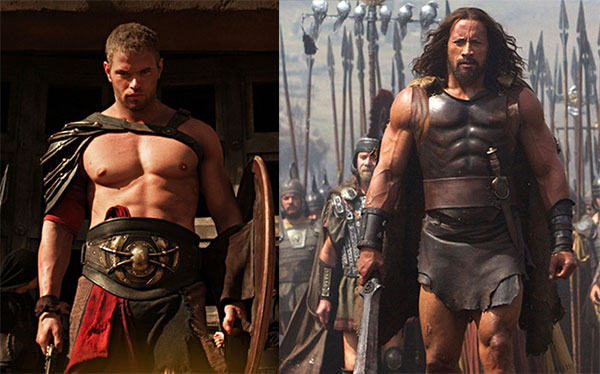SCS Blog Author Page
Posts by T. H. M. Gellar-Goad
How learning works in the Greek and Latin classroom, part 6
This month’s column is the penultimate in a series I’m posting every other month about how we can apply and see in action the 7 principles of research-based pedagogy described in the excellent book How Learning Works, by Susan Ambrose, et al. Last time was mastery. Before that came prior knowledge, practice and feedback, motivation, and Read more … |
|
Sinister adaptation: Sensationalism and violence against women in Roman drama and Anglo-American cinema (part 1: Fifty Shades of Grey, The Hunger Games, and Game of Thrones)
I have noticed a troubling pattern in some recent English-language cinematic and television productions that adapt written texts. In these adaptations, the movie or TV show changes its source material in order to heighten the violence against women depicted in the original or to add in such violence not previously present. In my view, each of the works that fit this pattern (including Fifty Shades of Grey, The Hunger Games, Game of Thrones, and 300: Rise of an Empire — spoiler alert!) do so not for the purposes of genuine social critique or commentary but for mere sensationalism and enhanced titillation for certain viewers. And so I term it “sinister adaptation.” These sinister adaptations stand in marked contrast to some ancient Roman adaptations of Greek drama, including Terence’s Hecyra and Eunuchus and Seneca’s Hercules Furens, whose heightened violence against women highlights the adaptors’ criticisms of their Read more … |
|
How learning works in the Greek and Latin classroom, part 5
This month’s column is the fifth part in a series I’m posting every other month about how we can apply and see in action the 7 principles of research-based pedagogy described in the excellent book How Learning Works, by Susan Ambrose, et al. Last time was prior knowledge. Before that came practice and feedback, motivation, and knowledge organization. This month’s topic: mastery, ch. 4 of the book. When faced with a practice Read more … |
|
That cage of obscene birds: Slavery and sexual violence in Roman comedy and in the Incidents in the Life of a Slave Girl of Harriet Jacobs, part 2
In November’s column, I evaluated how the Roman comedy of Plautus and Terence bears out, mutatis mutandis, Harriet Jacobs’ claim in Incidents in the Life of a Slave Girl that American slavery “makes the white fathers cruel and sensual; the sons violent and licentious; it contaminates the daughters, and makes the wives wretched.” In this month’s column I trace the path from slavery through citizen cruelty and licentiousness to the central problem of the genre’s plots, the rape of unwed citizen girls. When viewed through the lens of Jacobs’ assertions about the corrupting influence of slavery on the free as well as enslaved, Roman comedy demonstrates a pattern in correspondence with her testimony. Unfettered sexual access to the bodies of Read more … |
|
How learning works in the Greek and Latin classroom, part 4
This month’s column is the fourth part in a series I’m posting every other month or so about how we can apply and see in action the 7 principles of research-based pedagogy described in the excellent book How Learning Works, by Susan Ambrose, et al. Last time was practice and feedback. Before that came motivation and knowledge organization. This month’s topic: students’ prior knowledge, ch. 1 of the book. The lesson from the first chapter of How Learning Works is simple and seemingly self-evident: “[s]tudents’ prior knowledge can help or Read more … |
|
That cage of obscene birds: Slavery and sexual violence in Roman comedy and in the Incidents in the Life of a Slave Girl of Harriet Jacobs, part 1
In May’s column, I discussed how the image of the bitter cup in Lucretius’ De Rerum Natura offers a rich interpretive contrast to the bitter Cup of Sin and Shame in Harriet Jacobs’ narrative of freedom. In this month’s column, I explore what Jacobs’ narrative can teach us about Roman comedy. Harriet Jacobs’ Incidents in the Life of a Slave Girl (1861) combines autobiography with broad lessons about slavery, based both on the narrator’s own life and on the sufferings of other enslaved persons that she witnessed. “You may believe what I say,” she says early in her text, “for I write only that whereof I know. I was twenty-one years in that cage of obscene birds.” Jacobs draws readers towards more active opposition to slavery through the specific and the Read more … |
|
How learning works in the Greek and Latin classroom, part 3
This month’s column is the third part in a series I’m posting every other month or so about how we can apply and see in action the 7 principles of research-based pedagogy described in the excellent book How Learning Works, by Susan Ambrose, et al. Last time was motivation, and before that was knowledge organization. This month’s topic: practice and feedback, ch. 5 of the book. Language acquisition is a hard task, particularly when the language is, like Latin and ancient Greek, inflected, culturally distant, and highly literary. Learning a foreign language demands the kind of rigorous and sustained practice that is the basis for all successful learning — and in Read more … |
|
Hercules: The Thracian Wars in comics and on screen
In July’s column, I drew out some thematic similarities between the January 2014 movie The Legendary Hercules starring Kellan Lutz and the July 2014 movie Hercules (henceforth “Rockules”) starring Dwayne “The Rock” Johnson. In this month’s column, I discuss Rockules as an adaptation of Steve Moore’s Hercules: The Thracian Wars comic books.
|
|
How learning works in the Greek and Latin classroom, part 2
This month’s column is the second part in a series I’ll post every other month or so about how we can apply and see in action the 7 principles of research-based pedagogy described in the excellent book How Learning Works, by Susan Ambrose, et al. Last time was knowledge organization. This month’s topic: motivating students, ch. 3 of the book. Latin and Greek are hard languages to study. Declension, conjugation, rules for subordination, derivation of verbal forms, particles, and vocabulary all require extensive memorization, practice, and integration. The studying won’t do itself, and we language teachers can’t do all the work for our students. One of our key goals and tools, therefore, should be to motivate students to learn, to practice, and to seek mastery of the language Read more … |
|
Hercules on the silver screen in 2014
|

 In Rockules, the climactic scene — in which Hercules, chained to two pillars, breaks free while screaming “I am Hercules!” — is taken almost directly from the Steve Moore-authored Radical Comics miniseries of which
In Rockules, the climactic scene — in which Hercules, chained to two pillars, breaks free while screaming “I am Hercules!” — is taken almost directly from the Steve Moore-authored Radical Comics miniseries of which  This year’s been a productive one for big-budget hack-and-slash films set in the ancient world. Besides a disastrous (so to speak) Pompeii and the 300 sequel focused on Themistocles and Artemisia, theatergoers have had the opportunity (some might say the misfortune) to see two movies about Hercules: The Legendary Hercules, starring Kellan Lutz, released in January, and Hercules, starring Dwayne “The Rock” Johnson, released this month. (For convenience, and for love of portmanteaux, I’ll refer to the latter as Rockules and the former as Herculutz. Also for convenience, I’m ignoring the mockbuster Hercules Reborn, also released this year.) I watched and enjoyed them both — your mileage may vary — and noticed
This year’s been a productive one for big-budget hack-and-slash films set in the ancient world. Besides a disastrous (so to speak) Pompeii and the 300 sequel focused on Themistocles and Artemisia, theatergoers have had the opportunity (some might say the misfortune) to see two movies about Hercules: The Legendary Hercules, starring Kellan Lutz, released in January, and Hercules, starring Dwayne “The Rock” Johnson, released this month. (For convenience, and for love of portmanteaux, I’ll refer to the latter as Rockules and the former as Herculutz. Also for convenience, I’m ignoring the mockbuster Hercules Reborn, also released this year.) I watched and enjoyed them both — your mileage may vary — and noticed